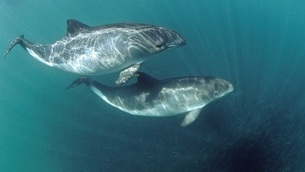New Publication: An interim framework for assessing the population consequences of disturbance6/30/2015 I am pleased to announce the publication of “An interim framework for assessing the population consequences of disturbance” in Methods in Ecology and Evolution
Authors; Stephanie L. King, Robert S. Schick, Carl Donovan, Cormac G. Booth, Mark Burgman, Len Thomas and John Harwood Abstract:
You can access the article at: http://onlinelibrary.wiley.com/doi/10.1111/2041-210X.12411/full
0 Comments
|
Archives
March 2023
Categories |

 RSS Feed
RSS Feed